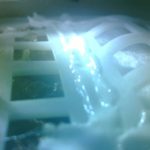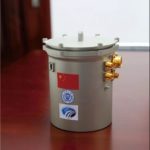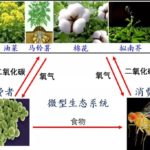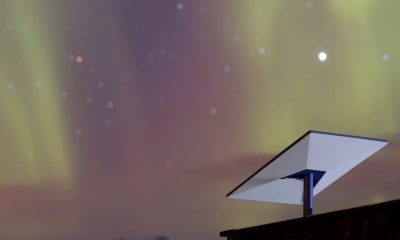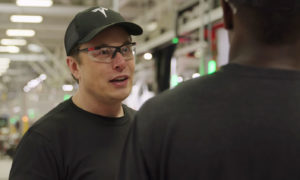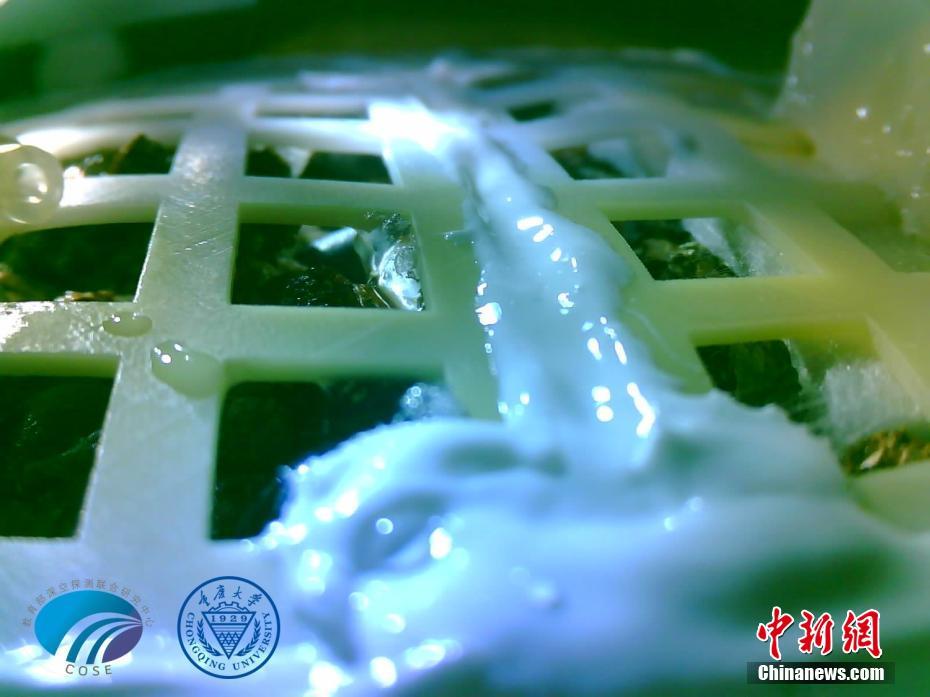

News
China successfully sprouts cotton seeds on the moon in a historic first
International discussions about sending humans to the Moon and Mars have brought many challenges waiting to be solved, and among them is food supply. While astronauts aboard the International Space Station (ISS) have been growing and consuming lettuce in space for a few years now, China has achieved a historic milestone by sprouting cotton seeds on the surface of the Moon. The news and corresponding photos were announced today. The seeds were part of a biosphere experiment which, if it performs as intended, will provide helpful data towards the development of sustainable agriculture in environments other than Earth.
China’s Chang’e 4 craft lunar lander arrived January 3, 2019 on the far side of the Moon, and part of its cargo included an aluminum alloy canister equipped with materials necessary for not only plant growth, but a self-sustaining biological environment lead by Chongqing University. Along with cotton seeds, the experiment included rapeseed, potato, and arabidopsis seeds, as well as fruit fly eggs and yeast to form a simple, tiny biosphere. A heat control system and two cameras were also part of the makeup.
Each member of the experiment was chosen with a bioprocess purpose in mind: Potato seeds represented a primary food supply for future space travelers (see also: The Martian), rapeseed could be used to produce oil, cotton seeds for clothing/supply fabric, the fruit fly would act as the consumer, and the yeast could regulate the oxygen and carbon dioxide being exchanged between the fly and the plants. The arabidosposis seeds contribute via its photosynthesis and could be a food source, but the plant is generally considered to be weed with a short growth cycle that could be useful for observation. The seeds and eggs were kept dormant until their lunar arrival, after which time they were watered by the lander. The germination of the cotton seeds alone has not yet been determined or specified by China’s space agency, the China National Space Administration (CNSA).
UPDATE: CNSA announced later on January 15, 2018 that the cotton sprouts are now dead. As the night period on the far side of the Moon set in, temperatures dropped to a level not sustainable in the biosphere canister.
- The cotton seed sprouts currently living on Earth as a comparable control. | Credit: CNSA/Chongqing University
- The canister containing China’s Chang’e lunar biosphere experiment on the Moon. | Credit: CNSA/Chongqing University
- A diagram of the types of seeds included in the Chang’e lunar biosphere experiment on the Moon. | Credit: CNSA/Chongqing University
Self-sustaining habitable environments for off-planet travel have been part of scientific research for decades, including a famous large-scale experiment conducted almost 30 years ago called Biosphere 2 (Earth is Biosphere 1). On September 26, 1991, 8 researchers were voluntarily sealed into a glass and steel structure on over 3 acres of land in Oracle, Arizona for two years, growing their own food and algae to sustain their living conditions, air included. It was supposed to be a step towards establishing space colonies, but unfortunately, low oxygen and food levels along with infighting (i.e., the human component) rendered the experiment a non-success.
While it’s certainly been determined that human interaction will be a big hurdle for long-term space faring missions, the engineering side of sustainable food production off-Earth is still facing challenges of its own and will continue to need development efforts. For example, astronauts on the ISS are currently working with an orbital agriculture experiment called Veggie which has recently faced issues with plant mold. While on Earth, we’ve become accustomed to the benefits provided by our planet’s natural biosphere – things like humidity, sunlight levels, water levels, etc. work in ways that are difficult to reproduce in a completely controlled environment like a spacecraft.
China’s mini biosphere experiment is another important step towards the long-term goal of sustainable off-planet environments. Given the struggles experienced during biosphere attempts on Earth, there might be a slow growth curve towards developing habitats that don’t need tons of resupply. This challenge is clearly acknowledged by the creators of the Chang’e lunar bio-canister. Professor Liu Hanlong, head of the experiment, stated in the seed sprout announcement, “We have given consideration to future survival in space. Learning about these plants’ growth in a low-gravity environment would allow us to lay the foundation for our future establishment of [a] space base.”
Elon Musk
Tesla reveals it is using AI to make factories more sustainable: here’s how
Tesla is using AI in its Gigafactory Nevada factory to improve HVAC efficiency.

Tesla has revealed in its Extended Impact Report for 2024 that it is using Artificial Intelligence (AI) to enable its factories to be more sustainable. One example it used was its achievement of managing “the majority of the HVAC infrastructure at Gigafactory Nevada is now AI-controlled” last year.
In a commitment to becoming more efficient and making its production as eco-friendly as possible, Tesla has been working for years to find solutions to reduce energy consumption in its factories.
For example, in 2023, Tesla implemented optimization controls in the plastics and paint shops located at Gigafactory Texas, which increased the efficiency of natural gas consumption. Tesla plans to phase out natural gas use across its factories eventually, but for now, it prioritizes work to reduce emissions from that energy source specifically.
It also uses Hygrometric Control Logic for Air Handling Units at Giafactory Berlin, resulting in 17,000 MWh in energy savings each year. At Gigafactory Nevada, Tesla saves 9.5 GWh of energy through the use of N-Methylpyrrolidone refineries when extracting critical raw material.
Perhaps the most interesting way Tesla is conserving energy is through the use of AI at Gigafactory Nevada, as it describes its use of AI to reduce energy demand:
“In 2023, AI Control for HVAC was expanded from Nevada and Texas to now include our Berlin-Brandenburg and Fremont factories. AI Control policy enables HVAC systems within each factory to work together to process sensor data, model factory dynamics, and apply control actions that safely minimize the energy required to support production. In 2024, this system achieved two milestones: the majority of HVAC infrastructure at Gigafactory Nevada is now AI-controlled, reducing fan and thermal energy demand; and the AI algorithm was extended to manage entire chiller plants, creating a closed-loop control system that optimizes both chilled water consumption and the energy required for its generation, all while maintaining factory conditions.”
Tesla utilizes AI Control “primarily on systems that heat or cool critical factory production spaces and equipment.” AI Control communicates with the preexisting standard control logic of each system, and any issues can be resolved by quickly reverting back to standard control. There were none in 2024.
Tesla says that it is utilizing AI to drive impact at its factories, and it has proven to be a valuable tool in reducing energy consumption at one of its facilities.
Elon Musk
Tesla analysts believe Musk and Trump feud will pass
Tesla CEO Elon Musk and U.S. President Donald Trump’s feud shall pass, several bulls say.

Tesla analysts are breaking down the current feud between CEO Elon Musk and U.S. President Donald Trump, as the two continue to disagree on the “Big Beautiful Bill” and its impact on the country’s national debt.
Musk, who headed the Department of Government Efficiency (DOGE) under the Trump Administration, left his post in May. Soon thereafter, he and President Trump entered a very public and verbal disagreement, where things turned sour. They reconciled to an extent, and things seemed to be in the past.
However, the second disagreement between the two started on Monday, as Musk continued to push back on the “Big Beautiful Bill” that the Trump administration is attempting to sign into law. It would, by Musk’s estimation, increase spending and reverse the work DOGE did to trim the deficit.
Every member of Congress who campaigned on reducing government spending and then immediately voted for the biggest debt increase in history should hang their head in shame!
And they will lose their primary next year if it is the last thing I do on this Earth.
— Elon Musk (@elonmusk) June 30, 2025
President Trump has hinted that DOGE could be “the monster” that “eats Elon,” threatening to end the subsidies that SpaceX and Tesla receive. Musk has not been opposed to ending government subsidies for companies, including his own, as long as they are all abolished.
How Tesla could benefit from the ‘Big Beautiful Bill’ that axes EV subsidies
Despite this contentious back-and-forth between the two, analysts are sharing their opinions now, and a few of the more bullish Tesla observers are convinced that this feud will pass, Trump and Musk will resolve their differences as they have before, and things will return to normal.
ARK Invest’s Cathie Wood said this morning that the feud between Musk and Trump is another example of “this too shall pass:”
BREAKING: CATHIE WOOD SAYS — ELON AND TRUMP FEUD “WILL PASS” 👀 $TSLA
She remains bullish ! pic.twitter.com/w5rW2gfCkx
— TheSonOfWalkley (@TheSonOfWalkley) July 1, 2025
Additionally, Wedbush’s Dan Ives, in a note to investors this morning, said that the situation “will settle:”
“We believe this situation will settle and at the end of the day Musk needs Trump and Trump needs Musk given the AI Arms Race going on between the US and China. The jabs between Musk and Trump will continue as the Budget rolls through Congress but Tesla investors want Musk to focus on driving Tesla and stop this political angle…which has turned into a life of its own in a roller coaster ride since the November elections.”
Tesla shares are down about 5 percent at 3:10 p.m. on the East Coast.
Elon Musk
Tesla scrambles after Musk sidekick exit, CEO takes over sales
Tesla CEO Elon Musk is reportedly overseeing sales in North America and Europe, Bloomberg reports.

Tesla scrambled its executives around following the exit of CEO Elon Musk’s sidekick last week, Omead Afshar. Afshar was relieved of his duties as Head of Sales for both North America and Europe.
Bloomberg is reporting that Musk is now overseeing both regions for sales, according to sources familiar with the matter. Afshar left the company last week, likely due to slow sales in both markets, ending a seven-year term with the electric automaker.
Tesla’s Omead Afshar, known as Elon Musk’s right-hand man, leaves company: reports
Afshar was promoted to the role late last year as Musk was becoming more involved in the road to the White House with President Donald Trump.
Afshar, whose LinkedIn account stated he was working within the “Office of the CEO,” was known as Musk’s right-hand man for years.
Additionally, Tom Zhu, currently the Senior Vice President of Automotive at Tesla, will oversee sales in Asia, according to the report.
It is a scramble by Tesla to get the company’s proven executives over the pain points the automaker has found halfway through the year. Sales are looking to be close to the 1.8 million vehicles the company delivered in both of the past two years.
Tesla is pivoting to pay more attention to the struggling automotive sales that it has felt over the past six months. Although it is still performing well and is the best-selling EV maker by a long way, it is struggling to find growth despite redesigning its vehicles and launching new tech and improvements within them.
The company is also looking to focus more on its deployment of autonomous tech, especially as it recently launched its Robotaxi platform in Austin just over a week ago.
However, while this is the long-term catalyst for Tesla, sales still need some work, and it appears the company’s strategy is to put its biggest guns on its biggest problems.
-

 Elon Musk1 day ago
Elon Musk1 day agoTesla investors will be shocked by Jim Cramer’s latest assessment
-

 News6 days ago
News6 days agoTesla Robotaxi’s biggest challenge seems to be this one thing
-

 News2 weeks ago
News2 weeks agoTesla’s Grok integration will be more realistic with this cool feature
-

 Elon Musk2 weeks ago
Elon Musk2 weeks agoElon Musk slams Bloomberg’s shocking xAI cash burn claims
-

 News2 weeks ago
News2 weeks agoTesla China roars back with highest vehicle registrations this Q2 so far
-

 News2 weeks ago
News2 weeks agoTexas lawmakers urge Tesla to delay Austin robotaxi launch to September
-

 News2 weeks ago
News2 weeks agoTesla dominates Cars.com’s Made in America Index with clean sweep
-

 Elon Musk1 week ago
Elon Musk1 week agoFirst Look at Tesla’s Robotaxi App: features, design, and more

